SOLVING DETERMINANTS USING PROPERTIES
Question 1 :
Without expanding the determinant, prove that
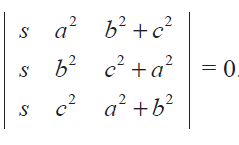
Solution :
To prove the given determinant as zero, we may try to show any two rows or columns as identical.
For that we use elementary operations.
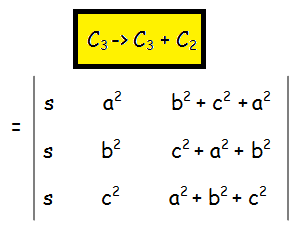
Now we may factor out "s" and "(a2 + b2 + c2)" from the 1st and and 3rd column respectively.
So, we get
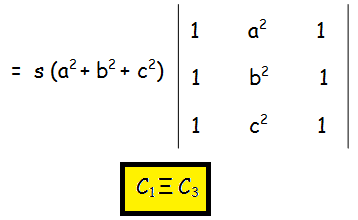
If any two columns are identical, then the value of determinant will become zero.
= s(a2 + b2 + c2) (0)
= 0
Hence proved.
Question 2 :
Show that
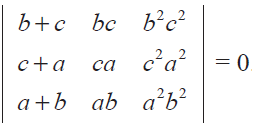
Solution :
In order to show any two rows or columns are same, let us multiply "a", "b" and "c" by the 1st, 2nd and 3rd row respectively.
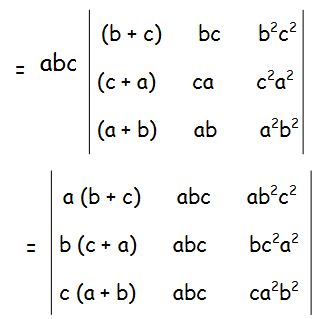
Now we may factor abc from 2nd and 3rd column respectively.
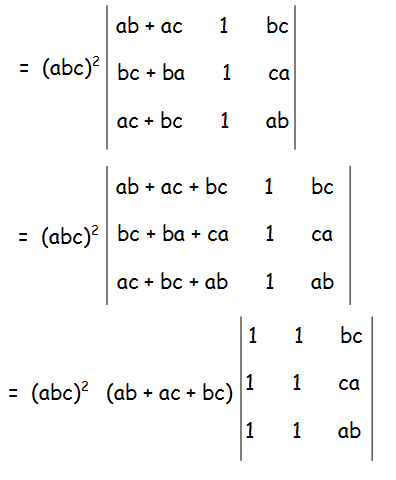
Since column 1 and 2 are identical, the value of determinant will become 0.
So, we get (abc)2 (ab + bc + ca) (0).
Hence the answer is 0.
Question 3 :
Prove that

Solution :
First let us factor out a from a2 + ab, b from b2 + bc and c from c2 + ac respectively.
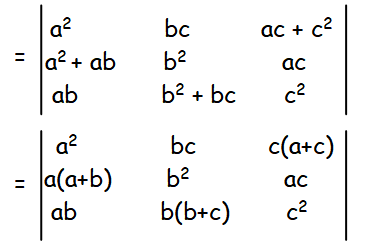
Factor out a, b and c from column 1, 2 and 3 respectively.
So, we get
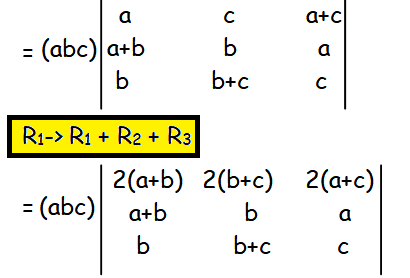
Now we may factor out 2 from the first row.So, we get
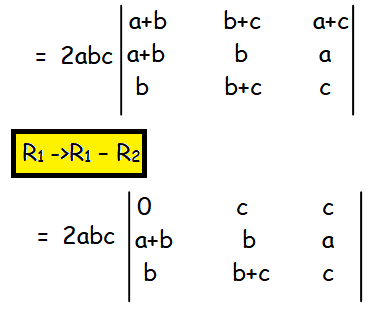
Now let us subtract column 3 from column 2. So we get
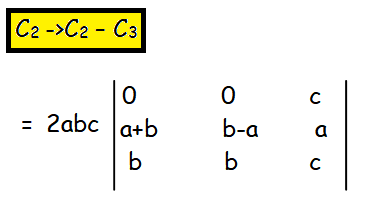
= 2abc [ c(ab + b2 - b(b - a)) ]
= 2abc [ c(ab + b2 - b2 + ab) ]
= 2abc [ 2abc ]
= 4a2b2c2
Hence proved.
Question 4 :
Prove that

Solution :
First let us subtract second row from 1st row.
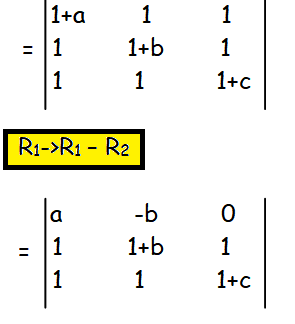
Since we cannot simplify this hereafter, let us find the expansion.
= a [(1+b)(1+c) - 1] + b[(1+c) - 1]
= a [(1 + c + b + bc) - 1] + b[1+c-1]
= a [c + b + bc] + b[c]
= ac + ab + abc + bc
= abc +ab + bc + ca
= abc (1 + 1/a + 1/b + 1/c)
Hence proved.
Kindly mail your feedback to v4formath@gmail.com
We always appreciate your feedback.
©All rights reserved. onlinemath4all.com
Recent Articles
-
Digital SAT Math Problems and Solutions (Part - 150)
Apr 25, 25 11:46 AM
Digital SAT Math Problems and Solutions (Part - 150) -
AP Calculus AB Problems with Solutions (Part - 19)
Apr 24, 25 11:10 PM
AP Calculus AB Problems with Solutions (Part - 19) -
AP Calculus AB Problems with Solutions (Part - 18)
Apr 24, 25 11:06 PM
AP Calculus AB Problems with Solutions (Part - 18)
